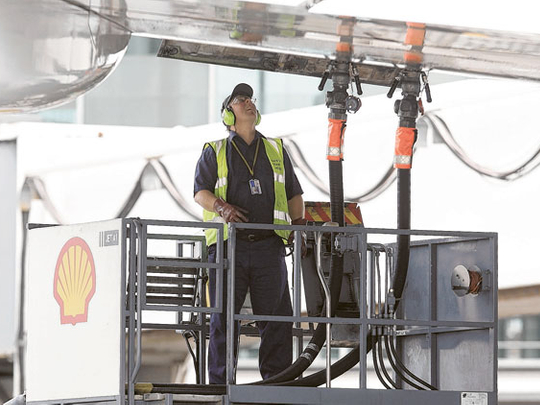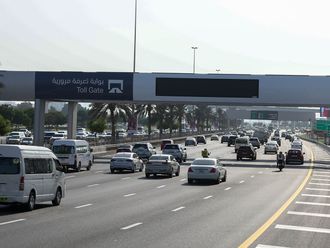
Dubai: Any short- to medium-term recovery for the airline industry must be matched by action taken on slowing down high-impact climate change.
Here’s one reason by - if all the airlines were a country, it would be one of the top 10 polluting nations on the planet. The aviation sector has a long-term climate change goal to cut CO2 emissions in half by 2050. It aims to achieve that by switching to more sustainable fuels, and accelerating the development of electric, hybrid and hydrogen aircraft.
See More
- Audi e-tron Sportback goes on sale in Dubai and Northern Emirates
- Photos: Former shipping container maker uses them to farm
- News in pictures: Amazon creates thousands of jobs in India, Airbus probe, Germany debt, gut microbe and cancer, 'whole system raped Hathras victim', UK economy...
- Pictures: Different stages of Dubai's Museum of the Future
“It will also require a commitment to collaboration going even beyond our current levels,” said Michael Gill, Executive Director of the Air Transport Action Group. “We have the next decade to set the scene for sustainable global connectivity for the next 30-40 years.”
Can it?
At a time when airlines still have vast fleets grounded and job losses mounting with each month, it will take some deep focus to stick to climate action plans.
“Air transport is in the midst of the deepest shock in its history - we expect a reduction of up to 4.8 million jobs in the sector by the end of the year,” said Gill. “And a massive hit to our ability to connect the world. However, as we plan for the recovery of air connectivity, we also must prioritise our environmental progress.”
Some believe sustainability will play a key role in the industry’s long-term recovery from the pandemic. “To ensure that aviation can continue to provide the economic and social benefits, it is crucial that we pursue a “green” recovery and lay the foundation for a sustainable industry for the long term,” he added.
So far, a majority of the investment in the field of sustainable technology has come from private players. With the industry short on cash in the current crisis, a more collaborative approach is called for.
“Manufacturers invest billions of dollars a year to make the next-generation of airplanes even more fuel efficient, but disruption from COVID-19 will make it difficult to maintain this level of investment in research and development,” said Eric Fanning, Chair of the International Coordinating Council of Aerospace Industries Associations. “Moving forward, government and industry leaders must find new ways to collaborate on funding and developing innovative technologies that will address climate change.”








